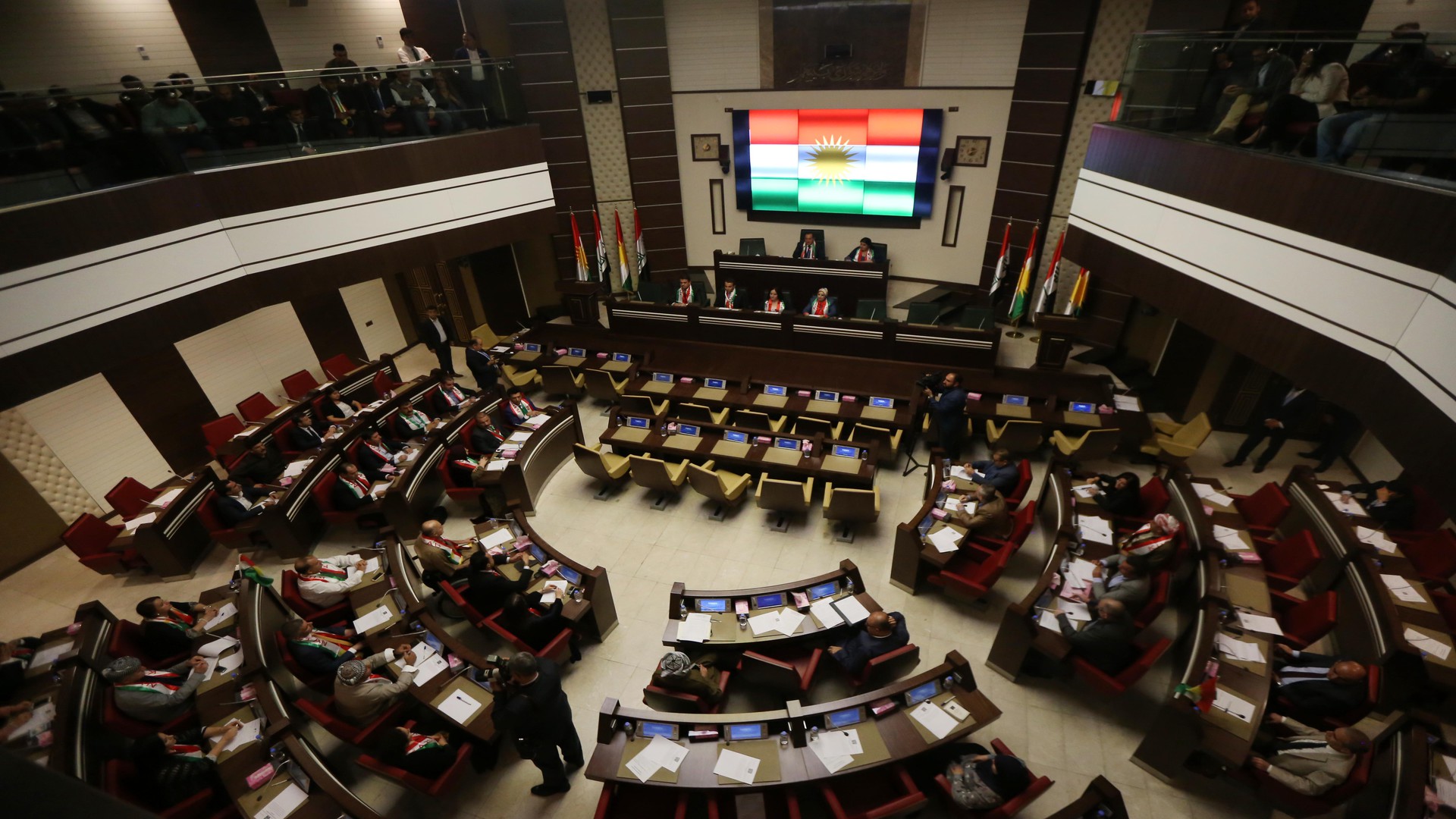Kurdish parliamentarian warns of consequences of US withdrawal from Iraq
ERBIL, KRG, Iraq (North Press) – The chair of the Relations and Kurdish Diaspora Committee in the Kurdistan Regional Parliament Rebwar Abdullah has warned of what he described as a “disaster” if the US forces withdraw from Iraq.
An important and strategic dialogue of interest to the Iraqis is taking place between the Iraqi delegation, which also includes representatives from the Kurdistan Region, with the American side, Abdullah told North Press in a statement.
On Sunday, Iraqi Prime Minister Mustafa al-Kazemi went to the United States of America as part of the fourth and final round of the strategic dialogue between the two countries, and is scheduled to meet with with US President Joe Biden.
Al-Kazemi’s visit came a few days after a meeting held by the Iraqi delegation headed by Foreign Minister Fuad Hussein with the American officials in Washington.
The most important issue in the current dialogue, according to Abdullah, is the issue of “scheduling the American withdrawal from Iraq,” adding that the technical aspect of this topic needs more details.
However, the parliamentarian, regardless of the details of scheduling the American withdrawal, warned that US withdrawal from Iraq and the Kurdistan Region “would cause a security and political catastrophe.”
The Iraqi army lacks readiness to confront security challenges, such as “ISIS pockets or armed groups and militias that threaten Iraq and the Kurdistan Region,” said the parliamentarian.
He pointed out that these groups are “regional ones. It is no secret that they carry Iranian agendas and they are considered the biggest security challenge after ISIS, in addition to the fate of outlawed groups, the phenomenon of disarmament in the hands of militias, and the assassinations of activists in Iraq.”
Iraq occasionally witnesses explosions carried out by ISIS sleeper cells, the latest of which was an explosion in Sadr City in Baghdad which killed at least 30 people and wounded dozens.
“The Iraqi security services are almost reluctant to impose security and stability, unlike the security institutions in the Kurdistan Region, which operate efficiently and are well organized,” Abdullah said.
Focusing on the issue of the withdrawal of US forces from Iraq, he said, “This means withdrawal of all foreign forces operating within the Global Coalition, as the US leads this coalition.”
Abdullah wondered about the consequences of other strategic issues that would be affected by the withdrawal, such as regional interventions led by Turkey and Iran in Iraq and the Kurdistan Region.
The parliamentarian stressed that “American forces remaining is in the interest of Iraq more than it is in the interest of the Americans,” attributing this to the fact that “the US is a strong country that can protect its interests in the world, unlike Iraq, which cannot do so.”
Abdullah predicted chaos in Iraq, as well as a military clash between Iraqi groups if the US withdrawal takes place.
He pointed out that the Sadrist Movement’s decision to boycott the elections carries many indications, such as the occurrence of clashes, which means the continuation of the war in Iraq.
The prominent parliamentarian revealed Kurdish messages and the point of view of the Kurdistan Region, carried by the Kurdish delegation within the Iraqi delegation participating in the dialogue.
He said that “these messages are known to all, as Kurdistan wanted and still wants US forces to remain in Iraq, and it was not part of the Iraqi parliament’s decision to remove these forces.”
Early in 2020, the Iraqi parliament voted on a resolution obligating the government to work to end the presence of any foreign forces on Iraqi territory. This came during an extraordinary session in the presence of the caretaker prime minister, Adil Abdul-Mahdi.
Rebwar Abdullah said, “The political and security situation in the Kurdistan Region is different from the situation in Iraq due to the fact that Kurdistan Region witnesses political and security stability.”
He believes that it is necessary “for these forces to remain in Iraq, so that the Iraqi forces can carry out their duty to the fullest.”

